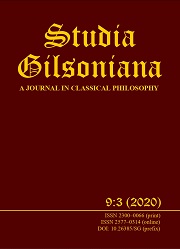AI Can Never Think: The Uniqueness of Human Thought
AI Can Never Think: The Uniqueness of Human Thought
Author(s): Jason NehezSubject(s): Philosophy
Published by: International Étienne Gilson Society
Keywords: AI; artificial intelligence; thought; mind; turing; materialism; functionalism; dualism; semiotics; computational theory;
Summary/Abstract: As the saying goes, imitation is the most sincere form of flattery, yet very few assume imitation to be equivalence. An original masterpiece may be worth millions while a copy, no matter how exact the resemblance, would yield just a fraction of the price. I propose that there is more to thought than a machine will ever be capable of. The imitation game, while reproducing an imitation that is something like human thinking and interaction, will never achieve that same unique mode of thinking we experience as human species. This presentation aims to outline some of the hidden assumptions in the Turing Test for the computational theory of mind, explain some of the most popular arguments against the computational model of thought today, provide some original thought experiments, and finally discuss briefly the unique aspects of human thought that may never be able to be replicated in a machine.
Journal: Studia Gilsoniana
- Issue Year: 9/2020
- Issue No: 3
- Page Range: 467-492
- Page Count: 26
- Language: English

